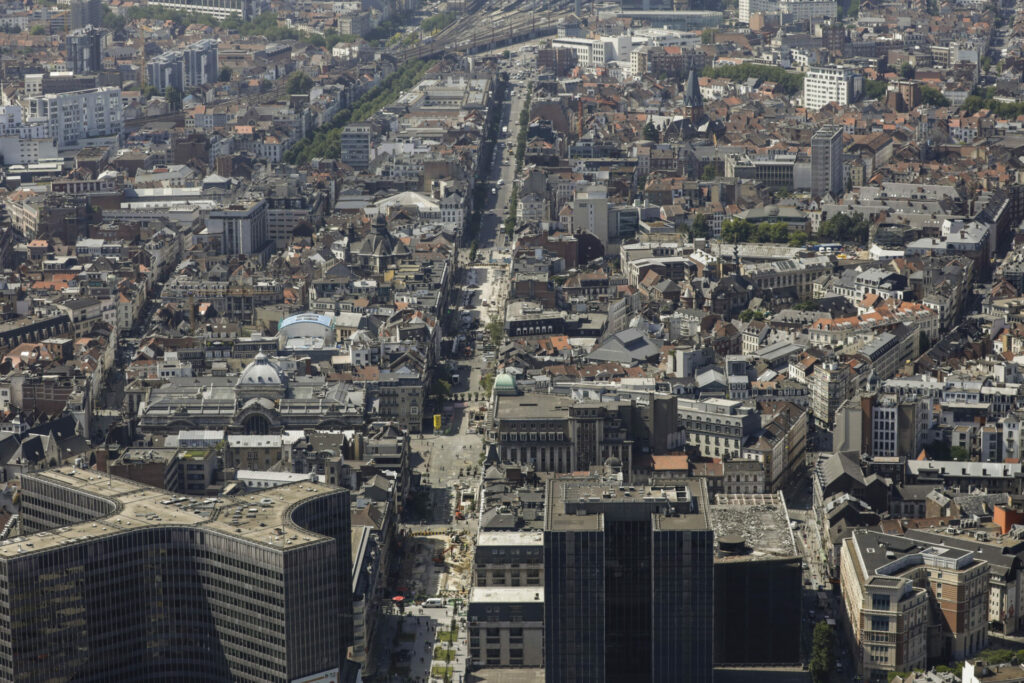While the recent opposition to the implementation of Brussels 'Good Move' mobility plan to make the city safer for pedestrians and cyclists was not unexpected, the European Transport Safety Council (ETSC) is urging the capital's politicians not to give up.
The protests against Good Move have centred around the fact that giving more space to cyclists and pedestrians means taking it away from motorists, which they feel is an infringement upon their freedom, said ETSC's Policy Director Ellen Townsend in a press release on Tuesday.
"In our work on road safety we hear this emphasis on freedom a lot around Europe," she said. "But let’s not forget: the right to drive 1.5 tonnes of steel around a city at 50 km/h may well impinge on the right of a child to walk to school safely, a mother to ride her bike to work in peace, or a student to get to sports practice on their e-scooter without risking death along the way."
Now, the city of Brussels is at the centre of what has become a very emotional discussion about these freedoms, according to Townsend. "Elements of the ‘Good Move’ mobility plan, years in the making and encompassing one of Europe’s largest 30 km/h zones, low traffic zones and major infrastructure and public transport improvements, are under threat."
Undeniable results
In some districts of the Anderlecht and Schaerbeek municipalities, council meetings have been disrupted by shouting and chaos, protestors opposed to the plans have destroyed infrastructure, and councillors have faced threats to their personal safety. "Low traffic zone pilot projects have been cancelled or put on hold before the test phase could even begin."
Townsend pointed out that while some of the issues at stake are unique to "the complex and sometimes fragile coalition politics" of the city, the argument now taking place in Brussels is the same one that happened when Amsterdam started building cycle lanes in the 1970s, and more recently in Ghent and London when low traffic zones were introduced.
"These cities also faced opposition to their plans, but the results speak for themselves," she said, pointing to a study by TM Leuven that found that Ghent’s plan led to a 31% reduction in road traffic injuries, while analysis of London’s Low Traffic Zones found that the total number of road traffic injuries inside the zones halved compared to the rest of the city, and that there was no increase in collisions on boundary roads.
"Brussels has set a target of zero deaths or serious injuries on its roads by 2030, so the status quo is not an option," said Townsend.
Additionally, the benefits of these kinds of measures are not limited to reductions in injuries, as these schemes also increase rates of walking and cycling and reduce air pollution and noise. "In short, they make cities better places to live for everyone without having a negative impact on the economy, despite what some commentators have said."
However, the political question remains how to make cities safer, more healthy, more liveable for the majority of the population without alienating groups that want to hold on to the ‘right’ to parking spaces outside every home, and no restrictions on the use of the private car.
Related News
- Boosting footfall: More visit central Brussels since Good Move
- 'Don't let the loudest win': Pro-Good Move petition gets over 5,000 signatures
- Second consecutive day of protests against circulation plan in Schaerbeek
"The answer, most likely, is that you cannot," Townsend said. "Reducing air pollution, combatting climate change, improving road safety, and promoting healthy and active lifestyles – these goals are just too big and too important to be held hostage by groups that want to uphold the status quo."
Strikingly, in the communes bordering the Brussels city centre where opposition to the Good Move plan has been most vocal, only 38% of households own a car, she pointed out.
While Townsend said it has been hard to find positive points about Brussels' record on mobility and road safety over the past decades, that has been changing in recent years. "The new pedestrian zones, the universal 30 km/h limit and new cycle lanes have given Europe’s capital some things to be proud of. Our message to politicians is now simply this: listen – yes; adapt – yes. But do not give in, and never give up."

